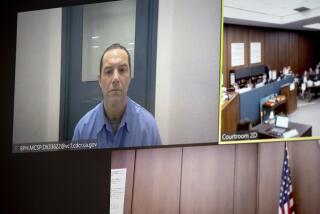New Immigration Law Affects Employers
Employers of all sizes will face stiff penalties if they knowingly hire illegal aliens, according to the 1986 Immigration Reform and Control Act, which became law last November.
The new law makes it unlawful for an employer to knowingly hire, recruit or refer for a fee an alien who is not authorized for employment in the United States.
Employers who violate this provision will face civil penalties ranging from $250 per unauthorized alien to as much as $10,000 per violation for repeat offenders. There are even criminal penalties for a “pattern or practice” of hiring unauthorized aliens.
The law does not apply to any employee hired on or before Nov. 6, 1986, so employers need not and should not attempt to check the status of their older employees.
For the next 12 months, first-time offenders will not be fined. And in order to give people time to apply for and recieve work authorization, penalties will not be imposed until after Sept. 1 for employers who hire employees who are eligible for legalization, as a result of a March 23 settlement of a lawsuit filed by several immigration rights groups.
“Undocumented immigrants who indicate to their current employer or prospective employer that they believe they are eligible for legalization and intend to apply for legal status will be permitted to work without having to produce formal immigration work authorization papers,” explains Linda Wong, Associate Counsel for the Los Angeles Office of the Mexican American Legal Defense and Educational Fund.
The law imposes significant new paper work for employers, large and small. They must comply with new verification procedures, whether or not they hire aliens.
Must Keep Records
All employers are required to review every new hire’s documents showing identity and authorization to work. They must also keep a record of them.
The employer and the employee must each sign an appropriate INS form under penalty of perjury. (The forms should be available from the INS within the next few months.) The employer confirms that he has reviewed the appropriate documents to prove the employee’s identity and work authorization, and the employee attests that he is a U.S. citizen or national, a permanent resident or an alien authorized to work here.
The law specifically requires that the employer must retain these forms for three years after the date of hire, or one year after the employee’s termination, whichever is longer.
If an employer fails to comply with the record-keeping requirements of the statute, he is subject to fines of up to $1,000 for each such failure.
“Employers should not behave as private INS investigators,” warns Matthew D. Ross, a San Francisco lawyer, writing in California Lawyer, a State Bar publication. “Uniform verification procedures should be applied to every employee hired, regardless of nationality.”
The documents that an employer should review must show both the employee’s identity and his authorization to work.
The following documents will establish proof of both: U.S. passport, a Certificate of Citizenship, Certificate of Naturalization, unexpired foreign passport with work authorization stamp or Alien Registration Receipt card.
If none of those documents is available, the employer must examine one document showing employment authorization, such as a Social Security card, and another document for identification purposes, such as a driver’s license.
More to Read
More to Read
More to Read
Start your day right
Sign up for Essential California for news, features and recommendations from the L.A. Times and beyond in your inbox six days a week.
You may occasionally receive promotional content from the Los Angeles Times.






